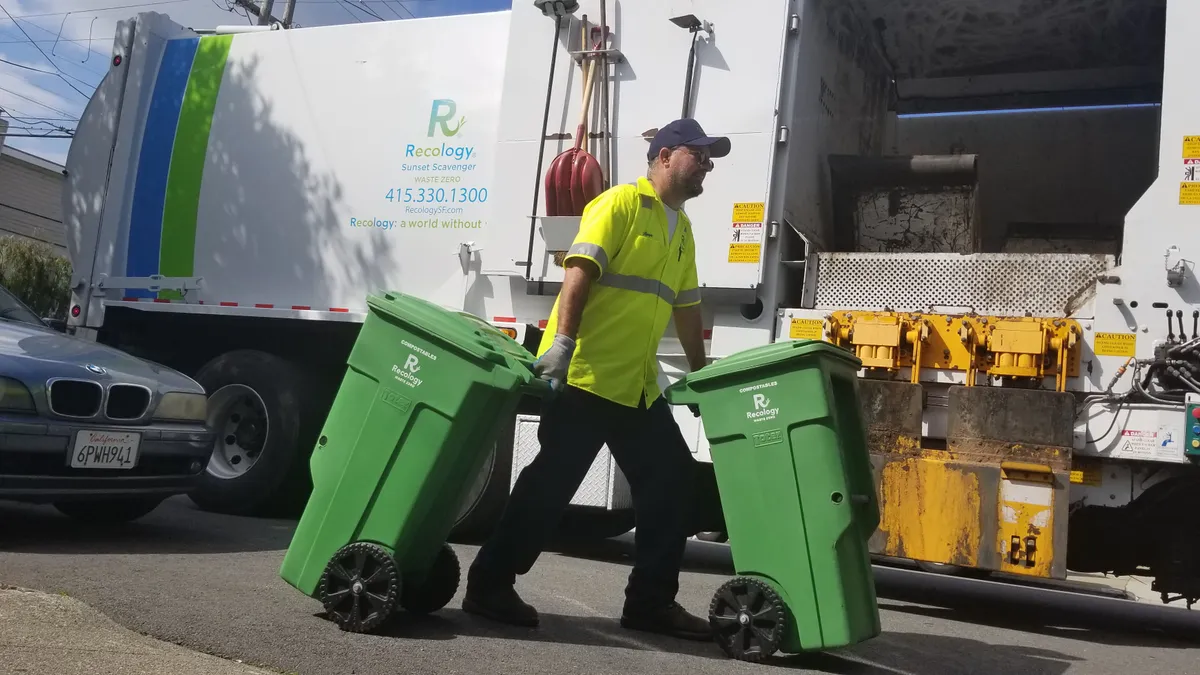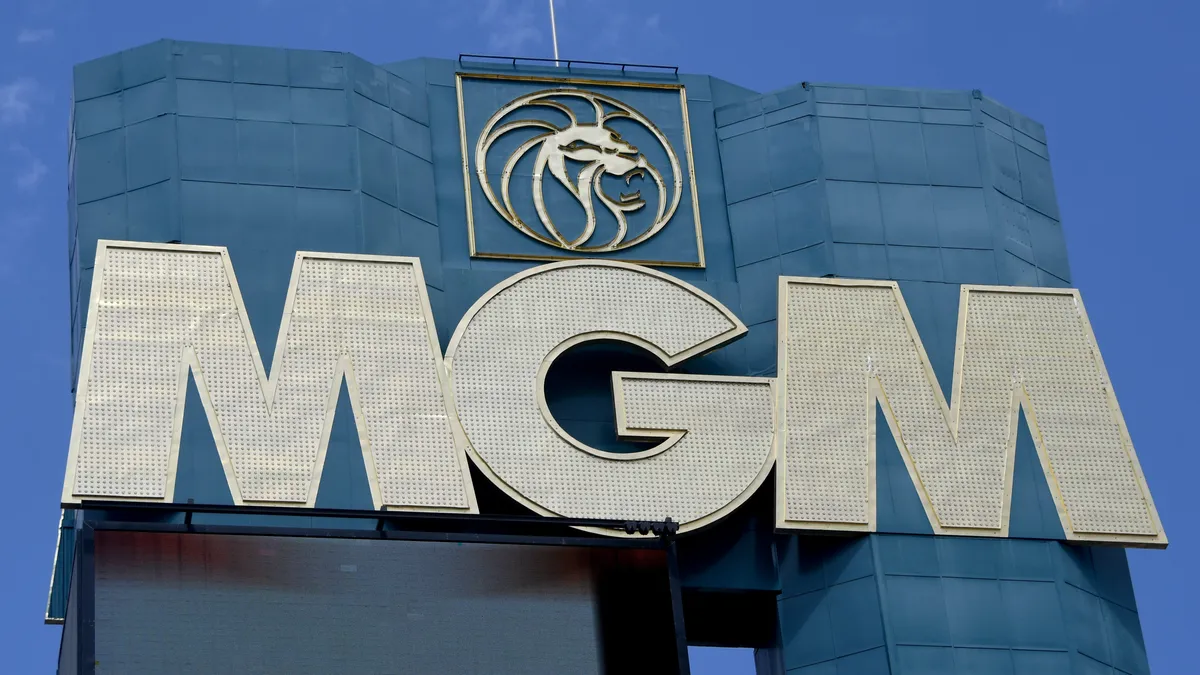When the American Hotel & Lodging Association launched its Responsible Stay program in 2022, major hotel brands — including InterContinental Hotel Group, Marriott International, Red Roof, Hyatt, Hilton and Choice International — committed to making meetings, events and guest experiences more environmentally and socially responsible.
One of the four tenets of the initiative is waste reduction, including from hotel restaurants and kitchens. According to AHLA, global food waste accounts for 10% of greenhouse gasses — more than the aviation industry contributes — and the hotel industry alone produces 79,000 tons of food waste annually.
Yet compared to other waste-reduction initiatives at hotels — properties are eliminating single-use plastic packaging, offering water bottle refill stations and rejecting plastic straws, for example — efforts in the kitchen have been slower to catch on due to logistical challenges.
With sustainability still a top priority for many hotel groups, properties are looking at inventive ways to decrease food waste. Here’s how several hotels have incorporated food waste solutions into their operations.
Using a ‘digester’
At the Spectator Hotel in Charleston, South Carolina, the property has a machine dedicated specifically to food waste reduction: a digester.
The property has been using Recoup Technologies’ digester since 2018, when it launched its food waste diversion program. Hotel staff run half-eaten foods through the machine, which uses live microorganisms to break down organic leftovers and turn them into reusable water. That water then goes back into the sewer system.
Since the hotel began using the digester, it has diverted over 61,000 pounds of food waste from landfills and created over 5,000 gallons of water.
“The process is like composting, but instead of creating soil it creates water,” said Carlo Carroccia, the Spectator’s general manager.
Incorporating the digester into the hotel’s workflows was relatively simple, Carroccia added. The staff separates food waste from recyclables and landfill waste, and throughout the day, the bin of discarded food is “fed” to the digester.
“This is a low-cost investment for the hotel that really makes a big difference to the sustainability of our operations,” said Carroccia.
Digesters vary in output according to their size, which can range from smaller machines for personal home use to industrial versions. Elsewhere in the hospitality industry, Carnival Cruises has also adopted the technology.
Salvaging ‘slurry’
Some hotels and restaurants have also started new composting initiatives.
In 2021, the Sheraton San Diego Hotel & Marina made changes to its composting program after it evaluated its waste output and noticed food was a large component. The hotel partnered with Waste Management’s CORe organic recycling program, which converts food waste into an “organic slurry” that generates green energy.
“When we cannot donate food to Feeding San Diego, we repurpose the food scraps to help eliminate the amount of food waste that goes into a landfill. As a result, we are lowering our carbon footprint and saving resources. Our goal is to reduce food waste by 20% in 2023,” said Sheraton San Diego Hotel & Marina Executive Chef Marcos Seville.
As part of the changes, the property began using a 220-pound dehydrator, which removes moisture from food scraps, resulting in a smaller size of waste. Today, the kitchen dehydrates food scraps from catering, resulting in a reduction in volume of over 80%. The food waste is then taken to a composting facility where it is recycled into mulch.
Reducing waste from the outset
In hotels, staving off overproduction can go a long way toward reducing food waste.
Hotels have the potential to decrease food waste by as much as 50% by developing menus designed to minimize waste both in the kitchen and after service, according to a joint study by the World Wildlife Fund and AHLA.
The Washington Hilton in Washington, D.C., is one location that has found success with the model. The hotel hosts a number of high-profile events — including the White House Correspondents’ Association dinner — yet it’s managed to cut food waste in half.
The hotel developed waste-conscious menus highlighting ingredients that produce smaller amounts of waste. Additionally, it donates excess food and meals — roughly 7% of their prepared foods, according to LightStay, Hilton’s sustainability reporting software.
What the Washington Hilton does have left goes into its digester weekly for processing.
Meanwhile, at the nearby Fairmont Washington DC, hotel staff redesigned their buffet offering to reduce waste by separating food waste from other waste streams at the buffet breakdown station. Among guests, the separate bins called attention to the idea of preventing food waste as a whole, and after a one-month trial of the system, the hotel found a compost hauler and created a permanent organic waste separation program.














